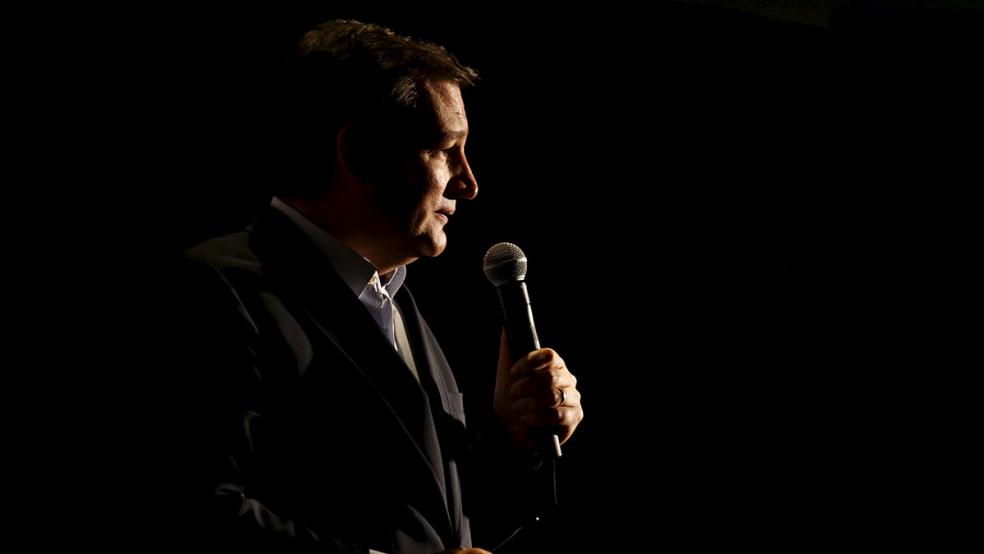As Ted Cruz heads into the vital Indiana primary tomorrow, his presidential campaign is, by most accounts, losing momentum at a time it can least afford it. Over the weekend, he got bad news:
- Cruz’s poll numbers are down.
- A New York Times story revealed that his support is weakening among Republican delegates who Cruz believed were a lock.
- The governor of the key state of Indiana, which votes tomorrow, again showed himself unable to muster a ringing endorsement for the Texas senator.
Related: Ted Cruz Thinks Everyone Is Out to Get Him
Cruz’s chief rival, frontrunner Donald Trump, has amassed a large lead in pledged delegates, and stands a good chance of locking up the nomination before the Republican Party’s national convention in July. Preventing Trump from doing that is now the only strategy remaining to Cruz. He is mathematically unable to win enough delegates in the remaining states to clinch the nomination himself, but he could still shoot for a contested convention by denying Trump the 1,237 majority.
Part of what that means is that Cruz needs to deny Trump delegates at every turn, particularly in states like Indiana, which will award 27 of its 57 delegates to the candidate who wins statewide and 27 more to the winners of nine separate Congressional Districts.
Unfortunately for Cruz, a poll released over the weekend by NBC News and the Wall Street Journal showed Trump with a dominant 15-point lead in that state. The current Real Clear Politics polling average for the state shows Trump with an average 4.1 percent lead. However, that includes one poll that appears to be a serious outlier, showing Cruz ahead by 16 points. Without it, Trump’s average lead would be 7.5 percent.
Cruz succeeded in earning the endorsement of Indiana Gov. Mike Pence on Friday, but the governor’s announcement on a radio program struck many as oddly backhanded. He spoke of his admiration for Trump, but said he had decided to vote for Cruz -- and he did it without really explaining why he preferred Cruz and, crucially, without urging voters to follow his lead.
Related: Indiana’s Governor Just Endorsed Ted Cruz. And Donald Trump
On Sunday afternoon, Pence published an op-ed in the Indianapolis Star that went a little further in explaining some of his thinking behind voting for Cruz, including his small government and social conservative positions. “My vote goes to Ted Cruz because he is a principled conservative who will work to protect our constitutional liberties, bring back better-paying jobs, and serve all Americans with the character and judgment needed to revive our national strength.”
However, Pence once again stopped short of encouraging others to vote for Cruz as well, saying, “I encourage every Hoosier to evaluate each of the candidates and exercise your right to vote in the May 3 Primary.”
Also on Sunday, The New York Times reported that Cruz’s support among the committed Republicans who will serve as delegates at the convention in Cleveland is weakening. According to the story by Jeremy W. Peters, the Texan is having an increasingly difficult time securing delegates in states where they have not yet been chosen, and in states where the process is complete, some delegates who originally supported him are starting to waver.
Related: Is Sanders About to Play the Email Card Against Clinton?
This is significant because at this point, Cruz’s only practical hope for the nomination is to deny Trump a first-ballot victory at the convention, and then count on many delegates who were pledged to Trump for one or two votes to flip to him on subsequent ballots.
That shifting sentiment appears to be reflected in the Gallup tracking poll, which recently found that Cruz now has a net negative approval rating among Republicans, and that the ratio of approval to disapproval is getting worse.
It’s never over until the votes are counted, of course, but now, things are not looking good for the junior senator from Texas.





